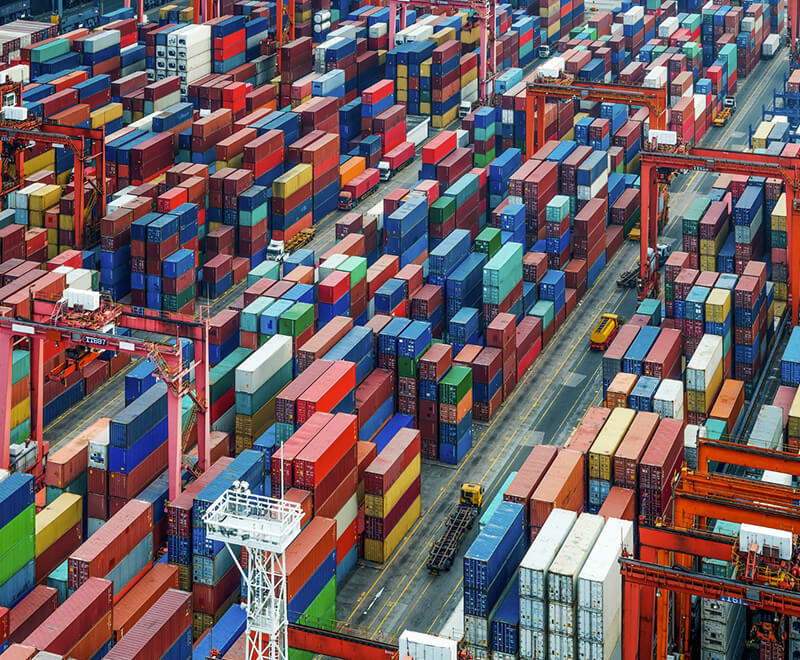Associate Partner Kieran O’Connell, formerly of Tata Steel, looks at the future for the steel industry following a tumultuous week and ponders whether a coherent industrial strategy would have prevented this situation.
Steel has rarely left the news since SSI shut its Redcar site in October, thereby ending a 100-year history of primary steelmaking on Teeside and with it over 2,000 jobs. Despite some positive government action since then, we have seen a troubled sector enter a serious crisis with Tata Steel now planning to exit the UK. The impact this would have on domestic manufacturing – vital to the government’s ambitions for productivity growth – should not be underestimated.
It might seem that this crisis appeared suddenly but it has been brewing for several years. Manufacturers have been issuing warnings since the days of the coalition about the risks posed by high energy costs, high business rates and a preference among procurers for ‘cheap’ over ‘high value’.
This was not an existential threat while domestic and export markets were healthy. But the world’s biggest consumer of steel has now become the world’s biggest exporter and is exporting heavily state-subsidised steel onto global markets for a fraction of production prices. This caused steel prices to plummet. The margins of companies including Tata Steel followed.
Business Secretary Sajid Javid has refused to support measures to make the EU (and with it the UK) market less attractive to cheap imports by imposing high import duties on dumped steel. He will feel stung by today’s news that China has imposed anti-dumping duties against European electrical steels. So too will Tata Steel, who produce them at another site in Wales. A cautious minister might also interpret this as a warning from China about how the domestic crisis is handled.
The immediate priority for government is to avoid job losses and, learning from its experience in Redcar, prevent the loss of the UK’s remaining blast furnaces. The menu of options is not long:
- Impose US-style trade tariffs on imported steels to stem the flow of Chinese imports. But it may be too late for this to help and could lead to an escalation of anti-dumping measures between China and the EU. The government will be careful about picking a fight with its trading partner of choice.
- Provide significant business rates discounts to encourage new investment into sites. But it is perhaps too late for this.
- Help Tata Steel sell its remaining UK business by finding buyers, underwriting financing and offering loan guarantees. But the stakes would be high for government if a buyer backed out.
- Nationalisation. But this would need to be temporary or risk breaching strict EU state aid rules. This scenario also requires a buyer to be found and while Tata Steel has written down the value of its UK sites to “almost zero”, the liabilities would be enormous.
What will the government decide to do? I doubt that it will let thousands of jobs and a strategic, historic UK industry fade away. At least I hope it won’t. Given the fragility of the situation (and an impending EU referendum) it might be concluded that the wisest approach is a mixture of all of the above – slightly higher trade tariffs, slightly lower policy costs, and a little bit of financing where it is needed. This at least allows government to say “at least we tried” in case it fails.
Perhaps most importantly, the government must show that it is willing to learn from this. The Business Secretary has repeatedly come under fire for his outright refusal to adopt an industrial strategy (there is a joke among Labour MPs who try to make him say the words ‘industrial strategy’ in the chamber, which Sajid avoids repeating with increasing skill). His detractors will argue that such a strategy could have avoided this crisis.
Industrial strategies may be interventionist in nature – but there is little point in refusing to adopt one out of ideology, only to sleepwalk into a crisis that requires even more significant intervention. Steel makers had been warning of the threats they face for years and they are not alone. Other significant manufacturing sectors – oil & gas, aggregates, automotive – have issued stern warnings about the threat they face in the UK. This week’s events prove they should be taken seriously. Perhaps an industrial strategy wouldn’t be such a bad thing after all.



